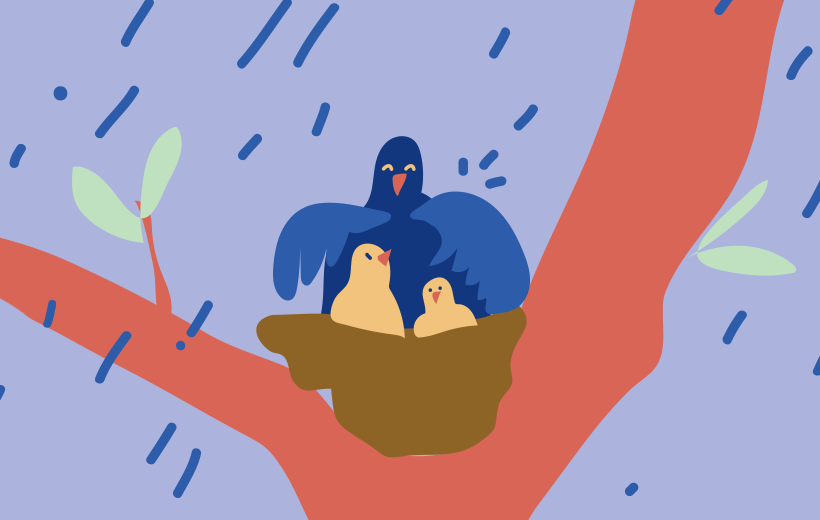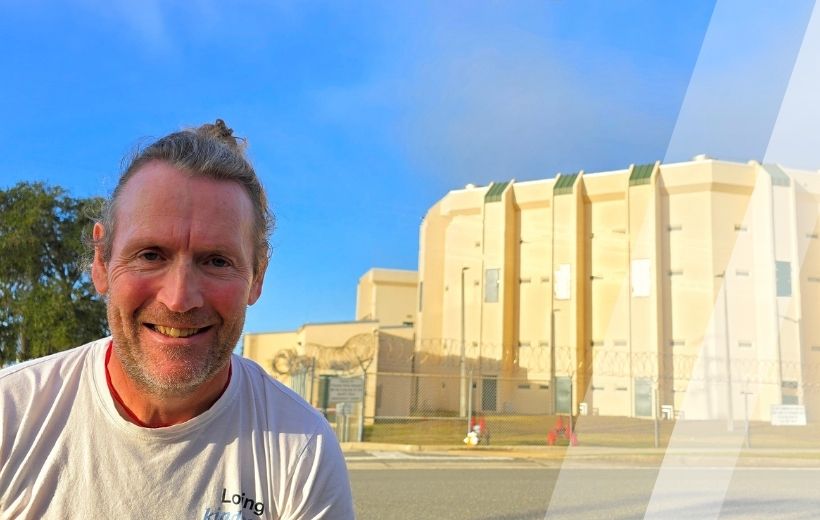How Meditation Transformed a Nurse’s Life
By Franka Cordua-von Specht • 3 min read
By Franka Cordua-von Specht • 3 min read

“When you connect with that basic feeling of love and compassion, you start to see it expressed in everything you do—and in others too.” – Micael Inês
Micael Inês, 43, knows first-hand how overwhelming life in a hospital can be. For twenty years, he worked as a nurse in Portugal, often in the most intense and high-pressure areas: intensive care and critical care units. It’s a job that demands immense attention to detail, especially when a single misstep could have serious consequences.
The shiftwork took a toll on his sleep, leaving him exhausted and anxious. Some nights, he’d get only one hour of sleep before going back to care for critically ill patients. The worry over making a mistake during those sleepless shifts loomed large. “It was really impacting the quality of my life,” he said from his home in Leiria, Portugal, where he lives with his wife and two daughters.
That’s when he turned to meditation. “I didn’t want to rely on medication,” he said. Instead, he sought a natural way to cope — and found it. Within two weeks of daily meditation practice, something remarkable happened. “My insomnia disappeared completely,” he said.
But the benefits went far beyond sleep. Micael realized meditation wasn’t just about rest — it helped him connect more deeply with his emotions and bodily sensations. “I started noticing what was happening while it was happening,” he said. This newfound awareness helped how he worked, and especially how he responded in high-stress situations.
“When you’re seeing so much suffering every day, it’s very easy to build a shell around you to protect yourself from others’ suffering,” Micael said. In his profession, it’s called empathic distress — a kind of burnout that arises from being too emotionally involved in patients’ pain. But meditation offered an antidote.
“When you’re grounded amid others’ suffering, you can help them in a different way. It’s better for them — and for yourself,” he said. “You’re not afraid of coming up against a person’s suffering, but you don’t merge or identify with it, so you’re free.”
The meditation results were so powerful that Micael began a serious meditation practice and cofounded the Tergar Leiria Practice Group and Tergar Portugal. The focus on meditation also took him in a new direction, and he now works for Tergar International as the Community Building Manager.
Now, Micael hopes to share meditation with others. As a recent Tergar Meditation Teacher Program graduate, he is preparing to teach the Anytime Anywhere Meditation (AAM) program, a five-week course that introduces people to meditation. His goal is to help those in the healthcare and education professions.
Just as meditation helped him in the hospital, Micael believes meditation can make a profound difference in classrooms. “Imagine you’re a teacher with thirty students, and they’re all misbehaving,” he said. “It’s easy to get overwhelmed.” Over time, stressed-out teachers may stop seeing their students as individuals and rather treat them as a single, solid block of students or perhaps only truly see a few students — their favorites.
With meditation, Micael believes, teachers can have greater self-awareness and a better sense of what is happening with their students. “When you are more aware of what you are feeling in the moment, then you are more free to engage with students,” he said. “Rather than reacting automatically, they can respond more thoughtfully.”
A New Approach to Meditation
Micael is particularly excited about teaching the AAM program, which he believes is a perfect starting point for beginners. “It’s simple, direct, and the language is relatable. There’s no jargon.”
One aspect that Micael feels is key is AAM’s focus on innate well-being is key. It helps participants connect with the good that’s already inside them — qualities like awareness, compassion, and wisdom.
“When you connect with that basic feeling of love and compassion,” he said, “you start to see it expressed in everything you do — and in others too.”
For Micael, the Meditation Teacher Program was transformative. “It taught me the importance of authentic sharing,” he said. In the classes he will lead, Micael plans to bring in stories from his own life — sometimes funny, sometimes sad—but always real. “When you share your own experiences, people realize, ‘Oh, this is happening to another human being, just like me.’”
In the end, Micael’s mission is simple: to show others that meditation isn’t something reserved for a special time or place. “It’s not just meditation,” he said. “They can bring it into whatever they are doing,” he said. “Because they are having human experiences — anywhere, anytime.”
December 2024

Franka Cordua-von Specht, co-founder of the Tergar Vancouver Practice Group and Tergar Canada, works for Tergar International’s marketing and communication team. She is a Tergar Guide and facilitates Joy of Living workshops.
Learn meditation under the skillful guidance of world-renowned teacher Yongey Mingyur Rinpoche at your own pace.


Whether for Tergar International or Tergar Institute programming, the well-spoken, dynamic Joseph Faria translates for the teachers (khenpos) of Osel Ling monastery in Kathmandu, Nepal. A devoted student of Mingyur Rinpoche, he has lived in Nepal for 12 years, intensively studying the Tibetan language and completing a Master of Buddhist Studies at Rangjung Yeshe in…

“Compassion has a support team and never stands alone. It is infused with awareness that allows our hearts to be open and steady. When we feel connected, kindness naturally arises. With wisdom, we can see what’s happening clearly; we don’t try to do the impossible but see what we can do to meet the situation.”…

After overcoming self-doubt and joining the Meditation Teacher Program, Mark O’Donaghue is helping those behind prison walls by sharing the radical message that everyone — even those society has forgotten — is already whole, complete, and inherently good.
If you enjoyed reading our articles, please join our mailing list and we’ll send you our news and latest pieces.